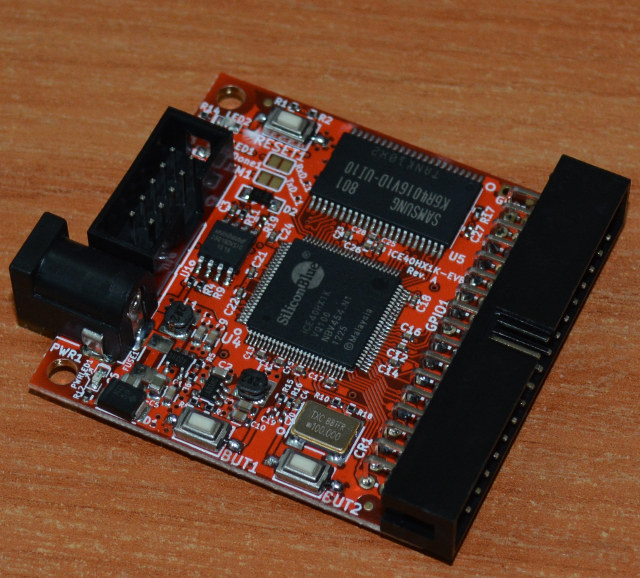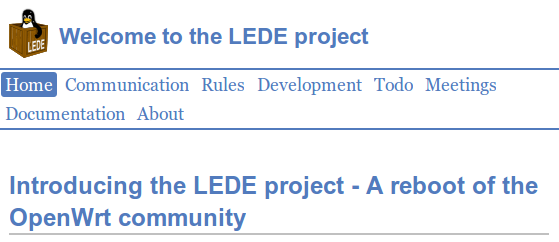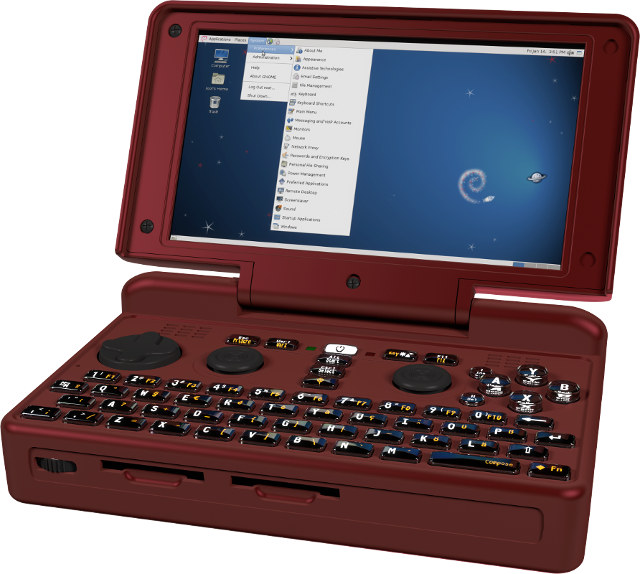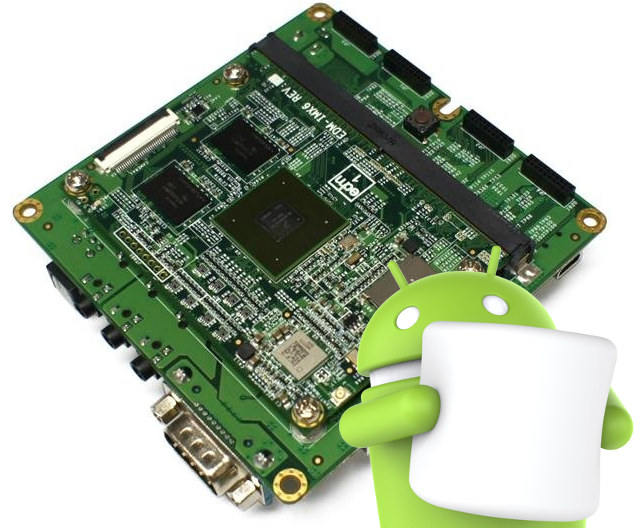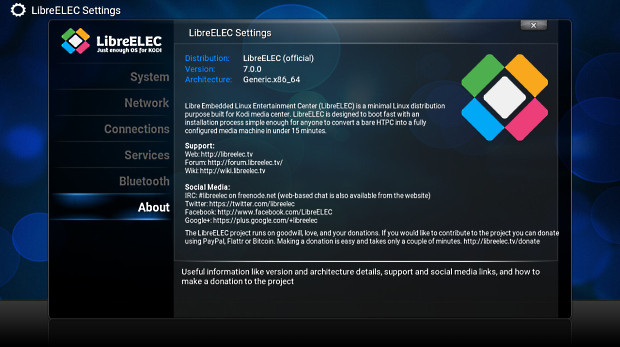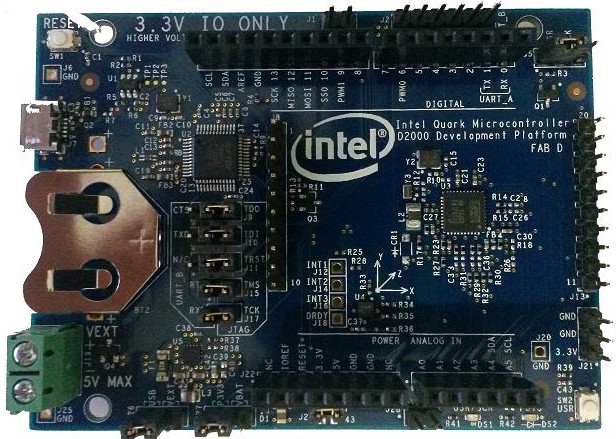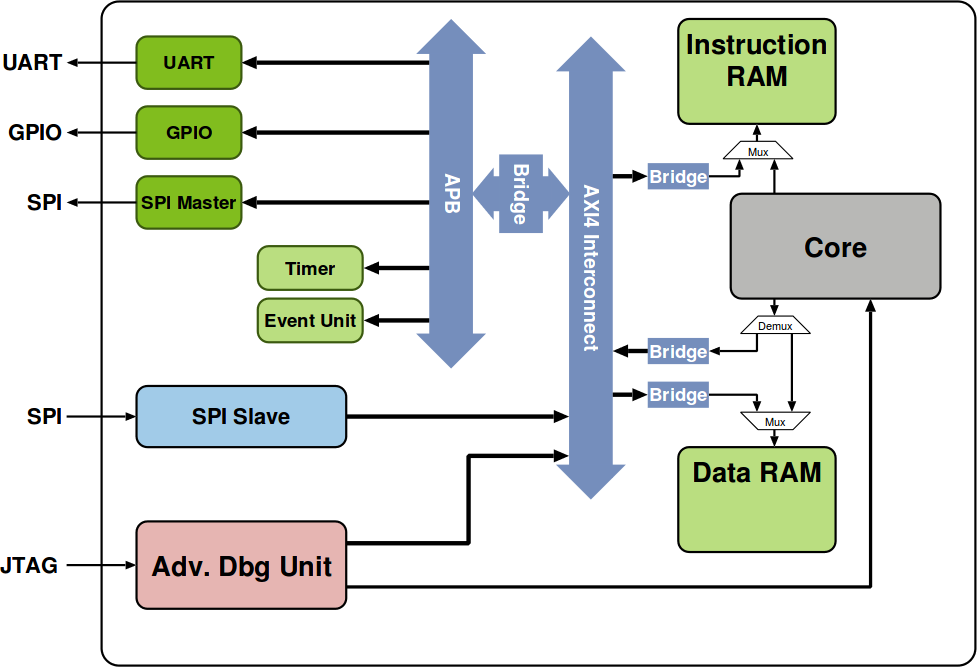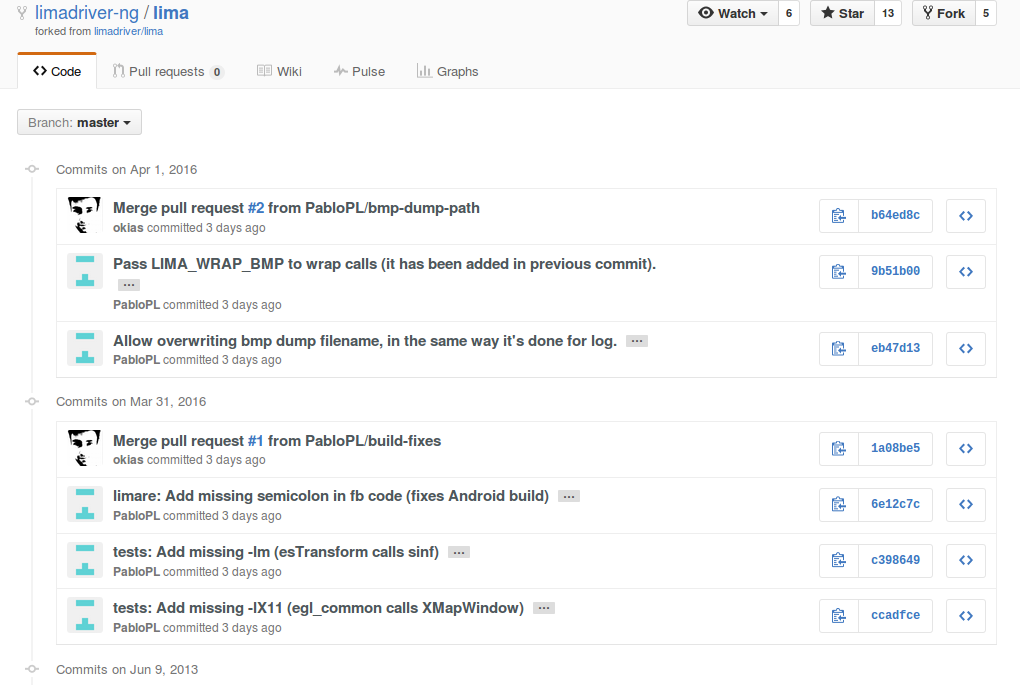Olimex has showcased a prototype of their small (5×5 cm) iCE40HX1K-EVB development board powered by Lattice Semi iCE40 FPGA, programmable with OLinuXino development boards via the UEXT interface, and compatible with Project Icestorm open source toolchain for Lattice iCE40. iCE40HX1K-EVB specifications: FPGA – Lattice Semi iCE40HX1K-VQ100 FPGA @ up to 533 MHz with 1280 gates, 160 Logic Array Blocks, and 64 kbit memory System Memory – 256Kx16 SRAM (Samsung K6R4016V1D-TC10 ) Storage – 2MB serial flash Expansion UEXT connector for programming 34-pin header to access FPGA I/Os Misc – 2x user buttons, reset button, 2x user LEDs Power Supply – 5V via power jack Dimensions – 5×5 cm (4-layer PCB) The company has also made four stackable add-on boards to connect to the 34-pin expansion header: iCE40-ADC fast 100Mhz ADC with BNC input connector for Digital Storage Oscilloscope (DSO) with up to 512 KB buffer iCE40-DAC fast 100Mhz DAC with […]
LEDE (Linux Embedded Development Environment) Project is a Fork of OpenWrt
2016 appears to be the year of splits in open source communities with Kodi losing its main Android developer, LibreELEC being born out of disagreements within OpenELEC community, and now LEDE project, a fork of OpenWrt, has been created because some people are not satisfied with the way the project is managed, and now “includes a significant share of the most active members of the OpenWrt community”. LEDE, which stands for “Linux Embedded Development Environment” , has three stated goals: Building a great embedded Linux distribution with focus on stability and functionality. Having regular, predictable release cycles coupled with community provided device testing feedback. Establishing transparent decision processes with broad community participation and public meetings. You can find more on LEDE Project website, and the source code is available on the project’s git server:
|
1 |
git clone http://git.lede-project.org/source.git |
Thanks to Zoobab for the tip. Jean-Luc Aufranc (CNXSoft)Jean-Luc started CNX Software in 2010 as […]
Pyra Open Source Debian Handheld Computer & Game Console is Now Available for Pre-order
The development of Pyra open source portable gaming console started in 2014, and after over two years of hard work, the developers are now ready to take pre-order of the Texas Instruments OMAP 5 powered device running Debian Linux. Pyra handheld specifications have changed a little bit since the announcement two years ago: SoC – Texas Instruments OMAP 5432 SoC with 2x ARM Cortex-A15 @ 1.7Ghz with NEON SIMD, 2x ARM Cortex-M4, Imagination Technologies PowerVR SGX544-MP2 GPU for 3D graphic, and Vivante GC320 GPU for 2D graphics System Memory – 2GB or 4GB RAM Storage – 32 GB eMMC flash, 2x SDXC card slot, 1x internal micro SDXC card slot Display – 720p 5″ LCD with resistive touchscreen Video Output – micro HDMI Audio I/O – High-quality speakers, analog volume wheel, headset port, built-in Mic Gaming controls – D-Pad, 4x shoulder buttons, 6x face buttons, 2x accurate analog controls with […]
Wandboard Development Boards Get Android 6.0 Marshmallow Support
Wandboard development boards powered by Freescale i.MX6 Solo, Dual and Quad Cortex A9 processors were released over 3 years ago with Android 4.1 Jelly Bean. Contrary to many other boards that don’t get an updated version, Wandboard boards got support for Android 4.4 Kitkat, Android 5.x Lollipop, and now the community has recently released Android 6.0 Marshmallow. You can try the Android 6.0 SD card image as follows:
|
1 2 3 |
wget http://download.wandboard.org/wandboard-imx6/android-6.0/wandboard-all-android-6.0.1-sdcard-20160428.zip unzip wandboard-all-android-6.0.1-sdcard-20160428.zip sudo dd if=wandboard-android-6.0.1-ga-20160428-sdcard.img | pv | sudo dd of=/dev/sdX bs=16M |
Where /dev/sdX is the device for your SD card. If you can remember the first Jellybean release had separate images for each version of the board, but thanks to device tree implementation, a single image is now released with all three versions. The full source code is also available in a 5.0 GB tarball. Since Freescale, now NXP, i.MX6 processors will be available until November 2022, we can most probably expect a few more Android releases for the board. Jean-Luc Aufranc […]
LibreELEC (OpenELEC Fork) v7.0.0 Released with Kodi 16.1
It’s not always easy to get along in life, and recently this has been true in Kodi developer community and related project, with Koying leaving his role as the main Kodi Android developer, possibly meaning Kodi 17 won’t get an Android port, and more recently several OpenELEC developers, not satisfied with some of the current project developments, decided to fork it, and create LibreELEC. The team of 25 or so members has now released LibreELEC v7.0.0 based on Kodi 16.1 which had also been released a few days ago. The changelog only reads: The 7.0.0 release contains Kodi Jarvis 16.1 (final) and a fix for Verisign SSL certificate changes that impacted Pandora add-on users. It also addresses a bluez crash, a firmware update for Intel Skylake users, and a fix for an Amlogic CEC issue on WeTek Play/Core. Most importantly it also contains our new logo branding. The images are […]
Intel Launches $15 Quark D2000 Arduino Compatible Board
Intel introduces three new Quark Micro-controllers last year, and I already experimented with Intel System Studio tools, quite similar to the Arduino IDE, and designed for hardware such as Intel Quark D1000 Customer Reference Board. So far the company had not released any boards available to the general public, but this has now changed since they’ve launched the “Intel Quark Microcontroller Developer Kit D2000”. Intel Quark D2000 development board specifications: MCU – Intel Quark D2000 32-bit processor Intel Pentium x86-compatible without x87 FPU @ 32 MHz with 8 KB SRAM, 32 KB instruction flash, 8 KB OTP flash and 4 KB OTP data flash USB – 1x micro USB (JTAG) for power and programming/debugging Sensors – 6-axis Accelerometer / magnetometer with temperature sensor (Bosch Sensortec BCM150) Expansion options: Arduino Uno compatible SIL sockets (3.3V IO only) Booster pack compatible SIL headers (3.3V IO only) Misc – Reset and user buttons, jumpers, […]
PULPino Open Source RISC-V MCU is Designed for IoT and Wearables
lowRISC is not the only open source processor project based on RISC-V instructions, as researchers at ETH Zurich university and the University of Bologna have developed PULPino open-source processor based on RISC-V instructions set, optimized for low power consumption, and targeting wearables and the IoT applications. PULPino is a single core processor derived from the PULP project (Parallel Ultra-Low-Power Platform) featuring a quad core RISC-V SoC with new RI5CY Signal Processing ISA extensions designed by the universities. The core has an IPC (instructions per cycle) close to 1, full support for the base integer instruction set (RV32I), compressed instructions (RV32C) and partial support for the multiplication instruction set extension (RV32M). PULPino also features peripherals such as I2S, I2C, SPI and UART. PULPino has already been taped out as an ASIC in UMC 65nm at the beginning of the year, but the RTL code be run on Xilinx Zynq-7010 powered Zedboard, […]
Open Source Mali-200 / Mali-400 GPU Lima Driver Gets New Commits
The Lima driver, a project aimed at providing an open source driver for ARM Mali-400 and Mali-200 GPUs, was introduced 4 years ago, and after some reverse engineering work, a Quake 3 demo was showcase later in 2013 with an intermediate version of the Lima drivers. However, the main developer (libv) eventually lost interest or lacked time to further work, and the latest commit was made in June 9, 2013. But another developer (oklas) committed some code to limadriver-ng just a few days ago. But don’t get too excited, as the modifications are minor with some build fixes, some other Makefile modifications, and only one C file modified with 6 new lines of code. But maybe that’s just the beginning… We’ll see. Mali-400 GPU is now rather old, so why would somebody work on this? One explanation could be C.H.I.P and Pine A64 boards are both based on Allwinner SoCs […]


